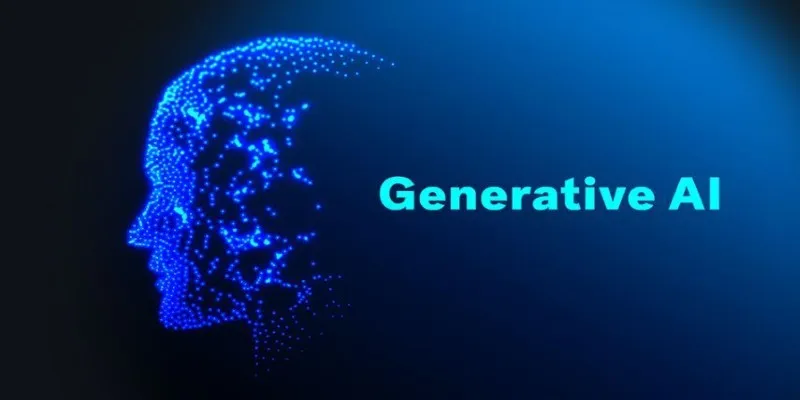Artificial Intelligence (AI) is revolutionizing industries worldwide, with finance being one of the most impacted sectors. What once relied solely on human expertise and manual processes is now enhanced or replaced by intelligent algorithms and machine learning models.
To remain competitive and deliver faster, safer, and more personalized services, financial companies globally are embracing AI. This technology is transforming how money is managed, transferred, and secured by automating back-end tasks and enabling real-time investment decisions. Explore these five remarkable ways AI is reshaping the financial landscape today.
1. Automating Repetitive Financial Tasks
One of the most significant impacts of AI in finance is the automation of routine tasks. Accountants, banks, and insurance companies often perform tasks that traditionally required manual intervention. AI allows these tasks to be completed quickly and accurately.
By leveraging robotic process automation (RPA) alongside AI, institutions can now efficiently handle tasks such as:
- Data entry and record matching
- Transaction categorization
- Invoice processing and approvals
- Generating financial reports
This level of automation minimizes human error, reduces operational costs, and frees employees to focus on more strategic initiatives. Consequently, companies can manage more transactions with fewer resources.
2. Detecting Fraud and Strengthening Security

Fraud is a persistent issue in the financial sector. Traditional methods of detecting suspicious activities often rely on static rules that may overlook sophisticated schemes. AI-based fraud detection offers a more robust solution.
AI models are trained to recognize unusual behaviors by analyzing thousands of data points in real time. These systems continuously improve by learning from past fraud cases and adjusting their predictions accordingly.
AI-driven fraud detection systems can:
- Identify irregular transaction patterns
- Flag multiple logins from different locations
- Analyze user behavior in real-time
- Block or delay suspicious transactions
This proactive approach enables institutions to detect and mitigate threats before damage occurs. Many banks and payment platforms now use AI as a frontline defense against identity theft, phishing attacks, and transaction fraud.
3. Enabling Smarter Investment Decisions
AI is revolutionizing investment strategies by providing enhanced decision-making capabilities for both individuals and institutions. With the vast amounts of financial data available today, it’s impossible for human analysts to monitor every variable. That’s where AI excels.
AI-powered systems can analyze stock trends, economic news, social media sentiment, and historical data to generate insights rapidly. These systems assist traders, fund managers, and retail investors by recommending optimal moves based on the available data.
Common AI applications in investing include:
- Robo-advisors for personal investment management
- Algorithmic trading models for executing trades at optimal times
- Risk profiling and portfolio optimization tools
Robo-advisors, for example, offer users tailored investment portfolios based on their goals, risk tolerance, and financial situation, bringing professional-level investment services to the average person at a fraction of the cost of traditional advisors.
4. Enhancing Customer Experience and Personalization

In the digital age, customer expectations have evolved dramatically. People demand instant service, 24/7 support, and personalized financial products. AI empowers financial institutions to deliver on all three fronts.
Chatbots and virtual assistants are some of the most prevalent AI tools in customer service. These tools answer questions, guide users through account processes, and even handle basic transactions—all without human intervention.
Benefits of AI in customer service:
- Reduced wait times and faster responses
- Consistent service across digital channels
- Personalized product recommendations
Beyond customer support, AI personalizes financial offerings by analyzing transaction history, behavior patterns, and preferences, enabling banks to suggest credit cards, loans, or savings plans tailored to each customer’s needs.
5. Supporting Better Risk Management and Forecasting
Risk is an inevitable aspect of finance. Whether dealing with credit risk, market risk, or operational risk, financial institutions must continually assess potential threats to their stability. AI enhances professionals' ability to manage and predict risks effectively.
AI systems analyze vast amounts of structured and unstructured data—from loan applications to social media mentions—to identify early warning signs. These insights allow institutions to make informed decisions and prepare for potential challenges.
AI is used for:
- Credit scoring and risk assessment for loans
- Predicting market volatility using news and economic indicators
- Scenario planning and stress testing
For instance, a bank evaluating a loan application might use an AI tool that assesses not only the applicant’s credit history but also real-time financial activity and external market conditions.
Why These Changes Matter
AI is not just expediting financial processes—it’s making them smarter, safer, and more user-friendly. For financial institutions, the benefits include:
- Improved efficiency through automation
- Cost reduction by minimizing manual effort
- Enhanced security with real-time fraud prevention
- Smarter decision-making with AI insights
- Increased customer satisfaction through personalization
These advancements also benefit customers, who can now access financial advice, open accounts, apply for loans, and receive support anytime, anywhere, without waiting in lines or on hold.
Conclusion
Artificial Intelligence is not replacing finance professionals—it’s enhancing their capabilities. By taking over repetitive tasks and analyzing massive data sets, AI allows humans to focus on strategy, creativity, and building stronger customer relationships. The financial sector is poised to invest even more in AI in the coming years, with technologies like natural language processing, deep learning, and predictive analytics leading the charge. For any financial institution striving to stay ahead, understanding and adopting AI is no longer optional—it’s essential.
 zfn9
zfn9























